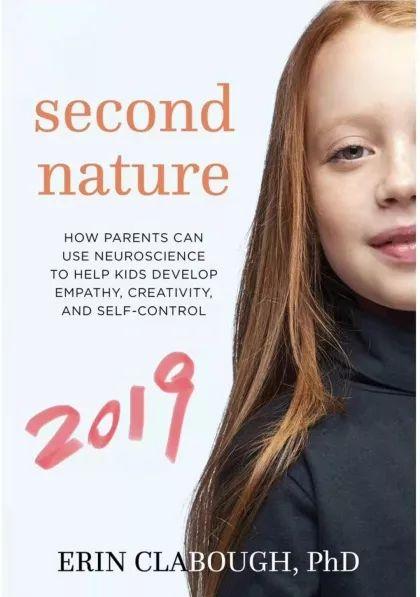From December 2018 to January 28, 2019, I downloaded nine new books published in English with the title "Creativity", starting with "Creative Education" and ending with "Creative Industries", according to my research interests.

The first, published in 2019, has a title that can be translated literally as "Second Nature: How Parents Can Use Neuroscience to Help Their Children Develop Compassion, Creativity, and Self-Control." Note that I've seen at least two books before with the title "Second Nature," so the subtitle of this new book is far from critical. In its very lengthy subtitle, which is not conducive to sales, there are three key words: 1. sympathy; 2. creation; and 3. self-control.
We know that Walter Mitchell, who died not long ago and is known for his lifelong "marshmallow ▪ experiments," wrote and so on, but the theme remains the same: the self-control that children show in marshmallow experiments statistically predicts how successful they will be 40 years later.
Therefore, the ability to control oneself cannot be overemphasized, and the American Psychological Association recognizes and awards Mitchell the "Lifetime Achievement Award" for this purpose.
Academics are prone to extremes, because it is difficult to make breakthroughs without being extreme enough. However, the use of knowledge in practice, the taboo is extreme. Hence the ancient Greek tradition of "practical wisdom," though lost for 2,000 years (see my Lecture Notes on The New Political Economy). The unbiased approach, which was well received in this 2019 book and has aroused my highest esteem, is the second picture, the Trinity, "sympathy-creation-self-control", which is the key expression of parents to develop children's creativity, and the remaining five pictures are the unfolding narrative of this expression.
The core idea of the book is expressed by these six pictures, of which the first and second are programmatic. I'll translate the second diagram item by item, which is an important set of principles of child developmental psychology:
1) When we make our own decisions, we learn more. Therefore, Western parents pay great attention to "giving children the opportunity to make mistakes", from kindergarten to college;
2) If we make our own decisions, we are more likely to do the right thing because those decisions are our own;
3) We can learn to make better decisions through decision-making;
4) When we make decisions, we change our own world and the world that surrounds us;
5) Frequent autonomous decision-making in our private affairs can make our lives more meaningful.
I think the second half of the last sentence of this item is not easy to translate, so let's express it like this for the time being.
The third picture, also worth translating, but not easy to be accurate, at this time, I prefer literal translation.
This diagram has only two lines, or two principles: 1) When there is no sympathy at all, we have no feelings at all, no thoughts, no actions at all. So, it's the equivalent of having a child watch a particularly boring and sleepy movie; 2) when we are completely sympathetic, we are passionate, we have sympathetic cognition, and we are eager to act. What to note here is the "sympathetic cognition", which is controversial. Brummer, a psychologist at Yale University, has written a book criticizing ms. Singh, who I like to quote Ms. Singer (see my Lecture Notes on Behavioral Economics and Essentials of Behavioral Economics), arguing that compassion sometimes produces serious cognitive impairments. Perhaps as a result, Ms. Singer has since 2013 moved to more advanced experimental research on "compassion." Compassion, imagine Shakyamuni or Avalokiteshvara, compassion is different from compassion because compassion does not hinder cognition because of emotion, compassion focuses on situations that deserve sympathy in a higher realm. This is the title of the sixth figure: Three Ways from Compassion to Compassion.
Source of this article: Caixin
Cao Yi /Photography
The author of this article is Wang Dingding, a professor at the National Development Institute of Peking University and the chief researcher of the Ruiyi Institute for Advanced Study. Professor Wang received his Ph.D. in Economics from the University of Hawaii in 1990 and taught at the Department of Economics at the University of Hong Kong. He is also the chairman of the Academic Committee of the Interdisciplinary Social Science Research Center of Zhejiang University, the chairman of the Academic Committee of the Interdisciplinary Research Center for Behavior and Social Sciences of Dongbei University of Finance and Economics, and the academic advisor of Caixin Media. Research and teaching areas in the last decade: behavioral economics (simulation, brain science, social networks), new political economy (economics, political philosophy, institutional economics), history of economic thought (conflict and complementarity between economic methods and intellectual history methods); interdisciplinary curriculum research and teaching methods, brain science and early childhood education, cyberspace economics (in collaboration with the Internet Lab).